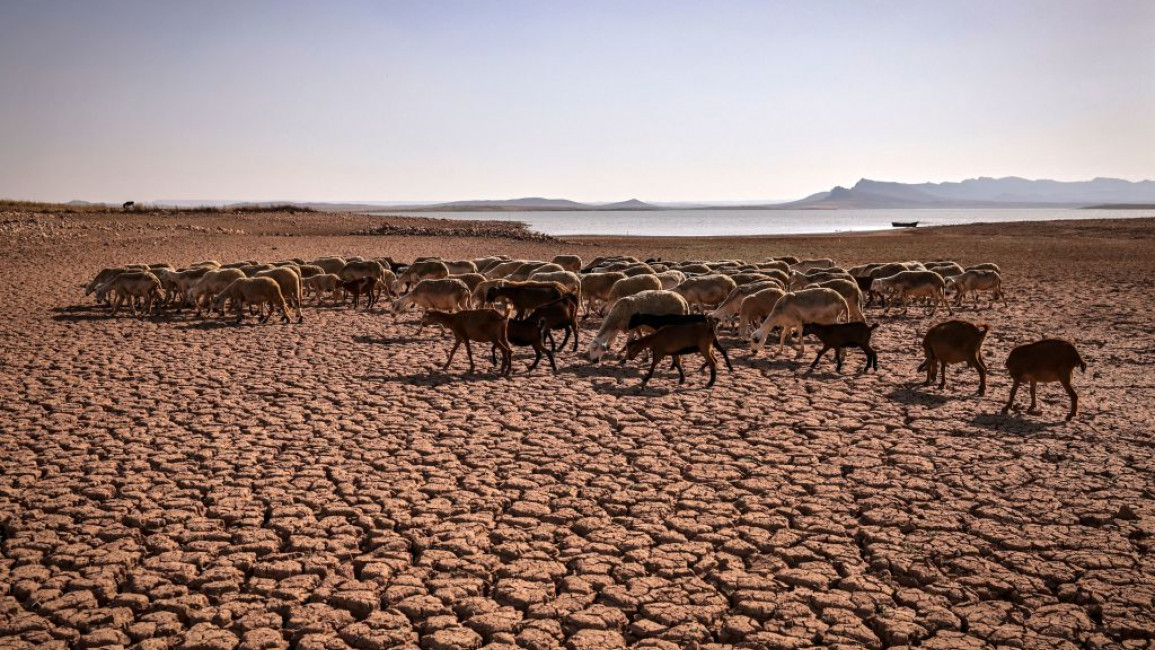Morocco's irrigated area shrinks as drought empties dams
Six consecutive years of drought have left Moroccan dams at critical levels, prompting a big drop in the area of land being irrigated, Morocco's water and agriculture ministers said.
By mid-January, Morocco's average dam filling rate had dropped to 23.2% from 31.5% a year earlier, water minister Nizar Baraka told a meeting on Tuesday, according to a royal palace statement.
Rainfall was 70% lower than in an average year, he said.
The country's second biggest dam, Al Masira, which serves the economic hub of Casablanca, is almost empty.
The worst drought in more than two decades prompted authorities to ban the use of drinking water to clean streets or irrigate parks in cities and to stop dam water being used to irrigate some key farming areas.
The decision took many farmers by surprise in the area of Taroudant in the Souss region, the main source of Morocco's fresh produce, which supplies supermarkets across Europe and is a major source of export revenue.
"Stopping dam irrigation has sapped my investments... this year's production is in danger," Mbark N'Ait Ali, a banana and vegetable farmer in Taroudant, said.
Wells have dried up in the area, with farmers having to dig down to 400 meters with no guarantee of finding enough water, he added.
This "violent drought" had forced a reduction in the dam-irrigated area to 400,000 hectares from 750,000 hectares before the dry spell, agriculture minister Sadiki said.
"Autumn crops are at a critical condition... we pray for rain," he said.
The ploughed area with rain-fed cereals has dropped this year to 2.3 million hectares, from 3.65 million hectares last year, which was also a dry year, he said.
Morocco's statistics agency expects the cereals harvest to be less than average this year, meaning more wheat imports.
As well as building waterways and new dams, Morocco plans eight new desalination plants powered by renewables.
It aims to produce 1.3 billion cubic metres of fresh water from desalination by 2035.
"We are afraid it will be too late when desalination will be ready to irrigate our farms," said N'Ait Ali.
(Reuters)



![A pro-Palestinian encampment at Columbia persists, despite recent arrests. [Brooke Anderson/The New Arab]](/sites/default/files/styles/image_212x120/public/2024-04/417084c8-3251-4705-8422-058fca1d5709.jpg?h=ddb1ad0c&itok=M1RtdyYz)